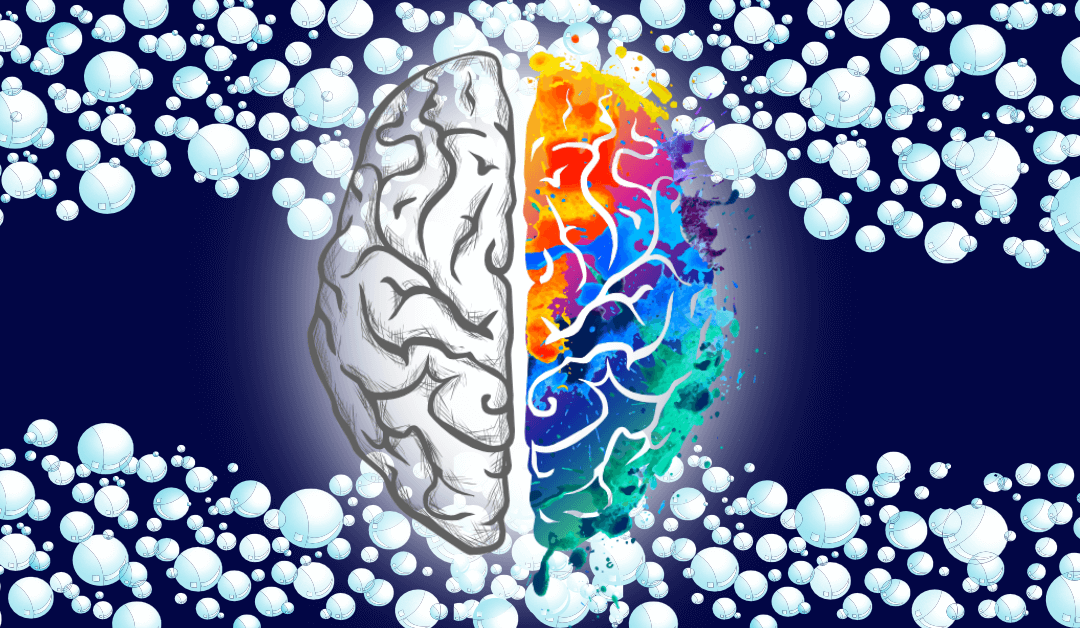Emotional hygiene techniques are daily habits that help your body regulate the chemical chain reactions triggered by emotions. They keep you grounded, reduce stress and prevent overwhelming emotions. I learned the term from Brad Yates and it is brilliant because it already expresses that emotional hygiene is essential.
Are you excited about adding another habit to your daily routine? Also, did you notice the s on the word “habits”? You want to practice at least two emotional hygiene techniques every single day.
If you hesitate about reading on, I understand. We’re already drinking a glass of water on an empty stomach, doing morning stretches, meditate, write a gratitude list and so on. Then there are the habits which really matter, like brushing our teeth and getting dressed. We simply can’t skip those.
Adding at least two more daily habits to your life might sound a bit much. You might even wonder why you should bother. The short answer: Because emotional hygiene techniques belong in the “can’t skip” pile of habits. For the long answer let’s stroll down the path of filth together.
Why is emotional hygiene essential?
Case Study 1: Physical Hygiene
Imagine you never brush your teeth or take a shower. Without brushing, your hair turns into coveted nesting material for birds. And your clothes? Stiff as a board. What colour were they when you bought them again?
Sure, this life comes with perks. There’s always plenty of room for you on public transport. If you don’t want to talk to someone you just lean in to whisper smelly niceties and they disappear at a brisk pace.
But the negative consequences… Oh! No one even considers you for that promotion you really want. Actually, your boss is tired of dropping hints and is preparing to fire you. And what’s with all those interventions your family and friends organize for you? You haven’t had a date in ages, but people are just so picky.
Sounds terrible, doesn’t it? And ridiculous because in reality you have been practising physical hygiene for a very long time. You brush your teeth and your hair, take a shower and wear clean clothes without thinking. These actions are part of your daily routine because they make an enormous difference to your life. Physical hygiene is just essential. No doubt about it. But what about emotional hygiene?

Case Study 2: Emotional Hygiene
Imagine you never release unhelpful emotions. Worse, you are really good at suppressing your body’s automatic emotional release responses, like crying. The physical chain reactions triggered by fear or anger build up in your body because emotions are cumulative. Over time, your base levels of accumulated chemicals are so high that you develop anxiety or turn into a ticking time bomb, ready to shout at anyone at the slightest provocation.
Sure, this life comes with perks. Your colleagues tell you how put together you are (pre-breakdown/explosion). They don’t know that you use extra strong deodorant which you have to re-apply five times daily. They even comment on your overall calm, because you only shout at and pick arguments with people who have to put up with you, like family members and subordinates.
But the negative consequences… Oh! Your boss crossed you off the list for promotions because she saw you have a go at the new intern. Your family and friends give you a searching look to gauge your mood before they talk to you. And when they do, they tiptoe around. You haven’t had a happy relationship in years, but people are so argumentative and picky.
Sounds terrible, doesn’t it? So, you practise emotional hygiene in different forms every day to help your body keep the chemicals released by uncomfortable emotions low so you stay balanced and… Wait. No, you don’t.
Why not?

How does emotional hygiene work?
Emotions are cumulative
Emotions trigger physical chain reactions in our bodies that prepare us for specific actions. What this means is that an emotion, like fear or anger, releases neurotransmitters and hormones into our blood stream which in turn cause chain reactions in our organs, cells and brains.
An emotion only lasts for a few seconds. Once it is over, our bodies do their best to reduce and filter out the stressful chemicals. The recovery, however, takes much longer than the initial emotion.
If it gets triggered again by either a similar event or by thoughts, we release another chain reaction. Another thought, another hit, and so on. After a while, our chemical base levels increase so much, that even the tiniest event we would normally hardly notice overwhelms us. That’s how emotions and stress become chronic and how fear turns into anxiety.
“Modern” life
Our bodies are miraculous wonders of natureand we have built-in systems to keep us healthy and balanced. But our modern lives and societal expectations put a spanner in the work. For instance, most of us do not sleep and rest enough for our bodies to fully regenerate.
The negativity bias ensures that we are exposed to fearful and infuriating material several times a day. And we spend too much time sitting. So we get tenser, more stressed, feel constantly angry and/or on the brink of tears, which by the way is an in-built release mechanism we are taught to suppress.
After a while, some of us even begin identifying with a specific emotion and come up with all kinds of reasons why we “are like this”. “I’m a nervous person because I care so much.” “I’m choleric. My father was a choleric and I inherited it from him.” “I’m just really sensitive.” No, you are not. You just never learned how to practice emotional hygiene.
Emotional hygiene is an essential habit
Remember the first time you brushed your teeth? Me neither. Ask your parents. Were you a willing learner, or did they have to stand behind you to make sure you brushed thoroughly?
When you were a teenager, or a student did you slack off with your physical hygiene and “forgot” to shower every day? Much better for the environment anyway. But at some point you got it. We all do. Hygiene is essential. Now tweak that belief to include emotional hygiene as well.
Pick two new habits, like EFT (tapping), 15 minutes of deliberate movement, planned crying or any other emotional hygiene technique that sounds easy and practise every day. Or create a list with your favourite techniques to pick and choose from. Twenty minutes a day are enough to keep your base levels low.

Maintenance
Emotional hygiene techniques are maintenance and prevent the built-up of chemicals released by uncomfortable emotions. In order to maintain a healthy balance, you have to get into it first though.
If you have felt fear, anger or shame for years, maybe even decades, doing an emotional reset is helpful, if the technique appeals to you. If not, emotional hygiene still works. It just takes longer to get back to healthy base levels.
Emotional hygiene is a life skill, meaning we practise it every day for the rest of our lives, so make it fun! Or turn it into an automatic habit like brushing your teeth. Whatever works best for you because emotional hygiene is essential.
